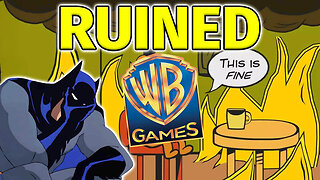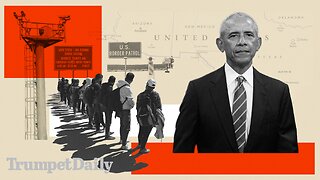Premium Only Content

1941-12-24 CBS Chesterfield - Moonlight Serenade - Glenn Miller
Christmas, celebrated by most Christians on December 25, commemorates the birth of Jesus of Nazareth. Americans, like many of the world’s peoples, have developed their own Christmas traditions and observances, and these have changed greatly over time.
Today, most Americans blend religious and secular customs with their own family traditions, often incorporating food, decorations and rituals from places they or their ancestors once called home. Roast turkey and ham are popular for Christmas dinner throughout the country, but depending on the region, so are tamales, roast goose with red cabbage, crawfish jambalaya, roast pork or “seven fishes” seafood salad.
DEVELOPMENT OF THE AMERICAN CHRISTMAS
The early New England Puritans frowned on boisterous Christmas celebrations. In 1659, the Massachusetts colonists briefly criminalized observance of the day, and Christmas remained a regular workday in much of New England and Pennsylvania. Other parts of British North America, however, celebrated with gusto, with costumed revelers going door to door and receiving small gifts of food and drink.
The modern, commercialized Christmas began to emerge in the 19th century with the new custom of purchasing gifts for young children. Seasonal “Christmas shopping” began to assume economic importance.
Other Christmas traditions similarly began during the 19th century. Santa Claus — derived from the Dutch Sinter Klaas and the German Saint Nicholas — assumed the persona of a jolly dispenser of gifts and pilot of a reindeer-drawn sleigh through such works as the 1823 poem “A Visit from Saint Nicholas.”
Germany is credited with starting the tradition of Christmas trees in the 16th century. According to legend, the Protestant reformer Martin Luther first added lighted candles to a tree to remind his children of the wonders of God’s creation. Christmas trees became popular in Britain and the United States in the 19th century.
-
 10:18
10:18
MrBigKid
51 minutes agoInsanely Compact Hunting Tripod you HAVEN'T heard of... Revolve
1 -
 20:29
20:29
marcushouse
7 hours ago $0.02 earnedUnleashing the Power of SpaceX's Starship: Why is it a Big Deal!?
1377 -
 10:46
10:46
Rethinking the Dollar
21 hours agoTrump Knows 'The Real Threat' To Your National Security
5608 -
 17:13
17:13
Degenerate Jay
4 hours agoWB Games Is Falling Apart
1842 -
 9:07
9:07
Bearing
7 hours agoElon Causes a Stir 🤣
1.17K20 -
 8:41
8:41
BIG NEM
20 hours agoMeet Tommy: He's a 40 Year Virgin
821 -
![EP. 151 - Become a Paid "Citizen Journalist" [your]NEWS - Meet Sam Anthony](https://1a-1791.com/video/fwe2/68/s8/1/T/E/Z/5/TEZ5w.0kob.2-small-Live-with-Restream-January-.jpg) 1:09:02
1:09:02
Kat Espinda
1 day agoEP. 151 - Become a Paid "Citizen Journalist" [your]NEWS - Meet Sam Anthony
6506 -
 1:00:21
1:00:21
Trumpet Daily
1 day ago $4.03 earnedWhy Do Migrant Criminals Love Obama So Much? - Trumpet Daily | Jan. 24, 2025
3.35K20 -
 55:39
55:39
PMG
18 hours ago $0.13 earnedDeep Sea Diver Explains Titanic and Space Shuttle Recovery Missions w/ Curt Newport
7771 -
 2:02:29
2:02:29
Wahzdee
5 hours agoIs It Too Late to Git Gud at Warzone? 🎮🔥 - Early Morning Solos! S1E3
72.3K1